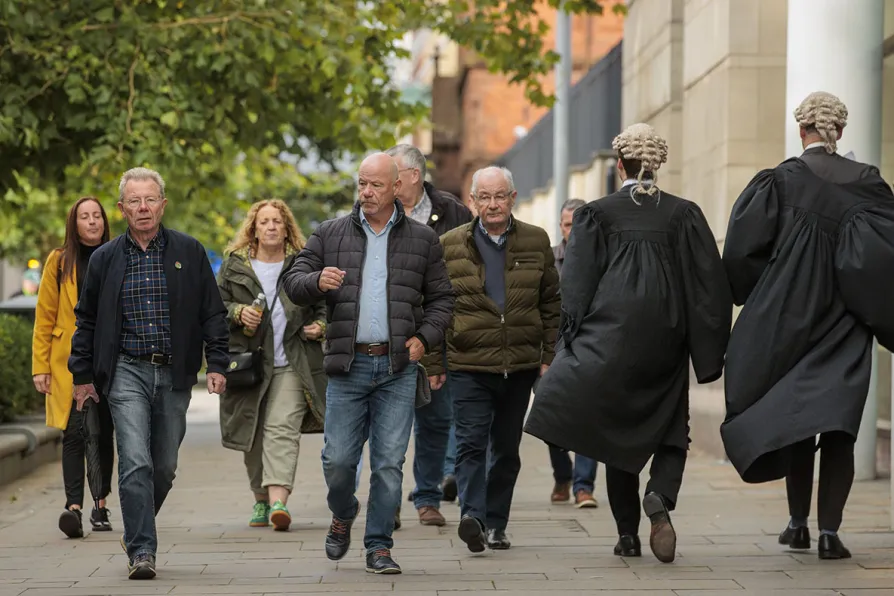
 Joe McKinney (second left), John McKinney (centre left), and Mickey McKinney (centre right), the brothers of William McKinney, one of the men killed on Bloody Sunday in 1972, arrive at Belfast Crown Court, September 18, 2025
Joe McKinney (second left), John McKinney (centre left), and Mickey McKinney (centre right), the brothers of William McKinney, one of the men killed on Bloody Sunday in 1972, arrive at Belfast Crown Court, September 18, 2025
THERE is a “cloud of uncertainty” around “decisive evidence” in the trial of a former paratrooper charged with the murder of two men in Derry more than 50 years ago.
While the prosecution made a hearsay application to admit a number of statements made by other soldiers on the ground during Bloody Sunday, Soldier F’s defence said they were a “series of unreliable, fundamentally flawed, inconsistent allegations.”
The statements made by two other soldiers claim their colleague fired shots at Glenfada Park North on January 30 1972, the day when members of the Parachute Regiment shot dead 13 civilians in Derry following a civil rights march.
Soldier F, who cannot be identified, is accused of murdering James Wray and William McKinney.
He is also charged with five attempted murders during the incident in Derry’s Bogside area, namely of Joseph Friel, Michael Quinn, Joe Mahon, Patrick O’Donnell and a person unknown.
He has pleaded not guilty to the seven counts.
The trial opened at Belfast Crown Court on Monday and heard the prosecution’s opening statement as well the statements of a number of people present at the shootings.
On Wednesday, prosecution barrister Louis Mably KC argued that statements given by Soldiers G and H to the Royal Military Police (RMP) on the night of the shootings, and to the Widgery Tribunal in 1972, taken together were decisive evidence around the question of whether or not Soldier F opened fire.
Responding for the defence on Thursday, Mark Mulholland KC questioned whether G and H had colluded, he said the RMP statements were a “series of unreliable, fundamentally flawed, inconsistent allegations” from 50 years ago, and claimed they may have been “seeking to justify” their own use of force.
In terms of the statements and oral evidence given to the Widgery Tribunal, Mr Mulholland said witnesses had been questioned, not cross-examined on that evidence, pointing out that it was an inquisitorial, not an adversarial process.
Judge Patrick Lynch indicated that he planned to deliver his ruling on the hearsay applications next Wednesday.
The trial continues.










